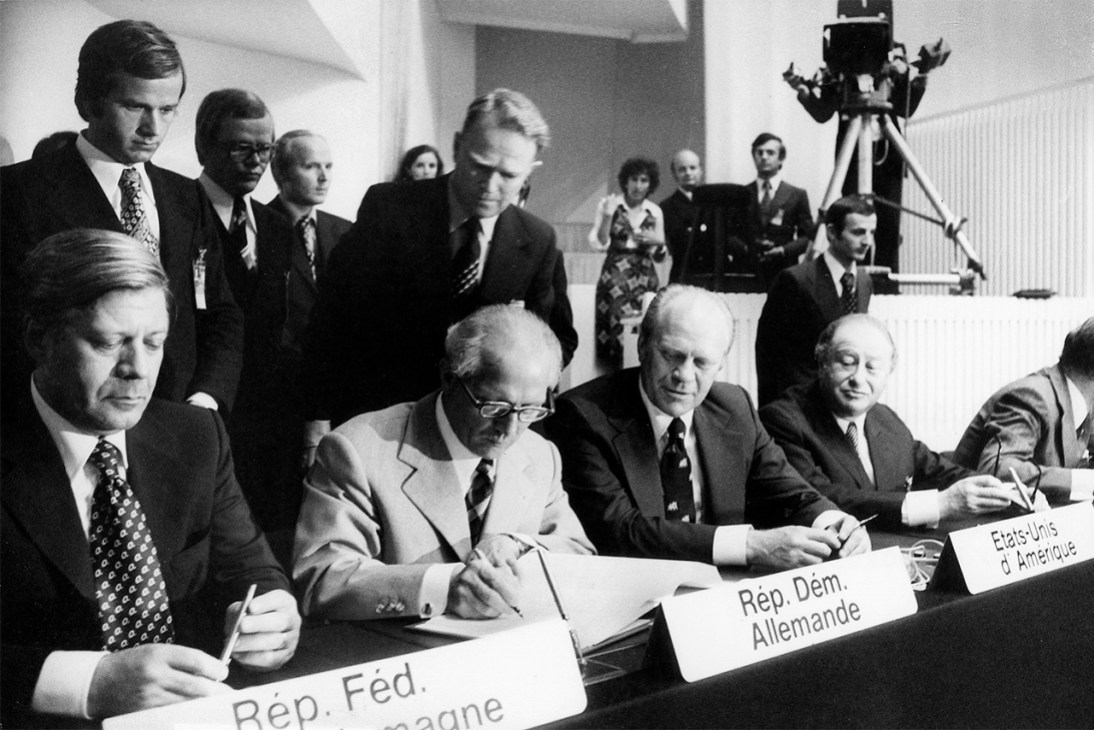Despite calls for dialogue, the Helsinki+50 Conference was ominously quiet
Fifty years ago there was an unprecedented coming together of leaders from East and West at a summit in Helsinki that laid down a set of principles. The Helsinki Final Act included commitments to respect territorial integrity, human rights and self-determination. The fact that Soviet leader Leonid Brezhnev backed the treaty at all was something of a surprise – former Finnish ambassador Mikko Pyhälä, a young attaché at the summit, tells me that Brezhnev joked until the very end that he wouldn’t sign it. In hindsight, acknowledging any rights of Soviet peoples wound up emboldening activists and arguably marked the beginning of the end for the Soviet Union. Five decades on, a more ruthless Vladimir Putin is smarter than to recommit to such pesky principles.

An attempt by Finland to recreate the Helsinki summit started back in 2021, when there might still have been some (misplaced) hope that a 50-year anniversary could be a moment of celebration. Instead, last week’s Helsinki+50 Conference was a relatively low-key affair, with a smattering of European foreign ministers and civil-society groups. There was much talk of reviving the Helsinki Final Act but little in the way of actual solutions to get us there at a time when countries are so clearly violating its principles. Finland’s president, Alexander Stubb, described a generational moment similar to 1918, 1945 or 1989. Comparisons to, say, 1914, 1938 and 1963 might be more appropriate.
Much like in the original iteration, there was emphasis on the need for dialogue, even between adversaries. Yet the fact that Russian and Ukrainian delegations were present at the conference was not heralded as an opportunity. Russia’s delegation was largely frozen out of proceedings. This might be appropriate given the country’s unwillingness to engage in serious negotiations towards a ceasefire in Ukraine. Nonetheless, it also felt as though it was a missed chance on all sides to begin the process of talking and asking hard questions that could lead us straight to a peace similar to that of 1945 – rather than into the start of another 1939.
Christopher Cermak is Monocle’s senior news editor. Monocle recently attended Operation Hedgehog, in which Nato troops joined the Estonian Defence Force to execute a series of large-scale defence drills amid rising concerns over the vulnerability of the Baltic region. Read the full piece here.



